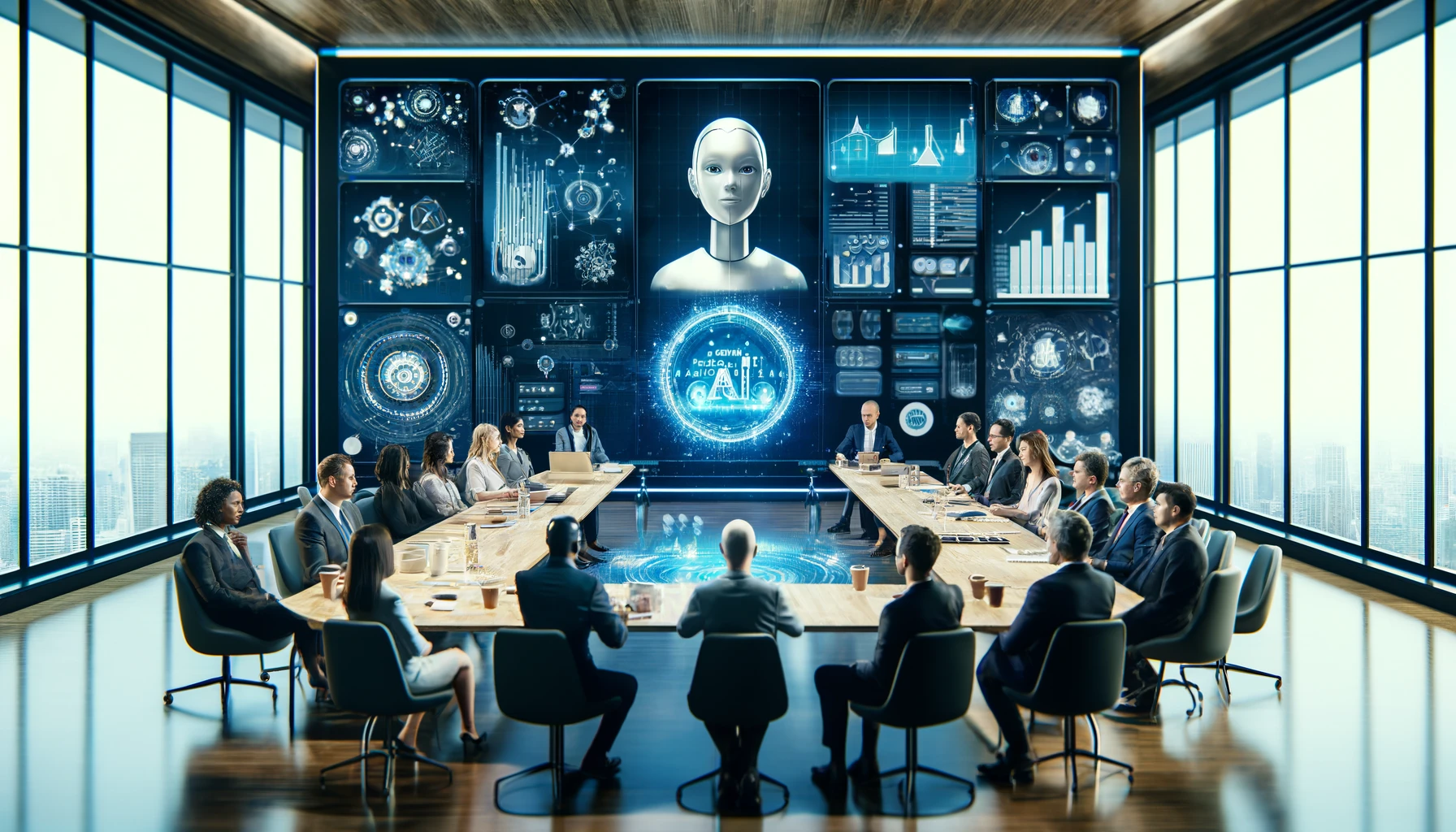The future of work is being redefined by the growing presence of artificial intelligence (AI) in teams. As we navigate this new landscape, leaders must adapt and evolve their skills to thrive in a world where machines augment human capabilities. This article explores the journey of rethinking leadership development for an AI-enabled world, focusing on the unique characteristics of AI as a team member and how it impacts different industries differently.

The Evolving Role of AI in Leadership
As AI becomes an integral part of teams, traditional notions of leadership might become obsolete. What skills do leaders currently lack or undervalue that will be crucial for effectively collaborating with AI? For instance, AI’s data-driven decision-making and automation capabilities may require leaders to develop a greater understanding of statistics and process optimization.
Industry-Specific Examples: Healthcare and Finance
To illustrate the concept of AI in leadership, let’s consider examples from two industries:
Healthcare: A hospital might use AI algorithms to analyze patient data and predict potential health risks. In such a scenario, a leader who understands how these algorithms work can better collaborate with their AI team member to develop more effective preventive care strategies.
Finance: Leaders must be creative in developing new financial products that leverage AI’s predictive capabilities while also adapting to regulatory changes prompted by these innovations. In this context, prioritization skills become crucial for managing multiple projects simultaneously without compromising quality or efficiency.
Skill Development for AI-Aided Leadership
As leaders navigate this new terrain, they’ll need to redefine what it means to be “hands-on” or “engaged.” With AI handling repetitive or tedious tasks, leaders can focus on high-level strategic planning and creative problem-solving. This shift might also reframe the concept of expertise, as AI has access to vast amounts of information that humans may not possess.
To remain relevant and effective in an AI-driven world, leaders should prioritize developing skills like creativity, adaptability, and prioritization. Organizational cultures will need to adapt to support the integration of AI into leadership teams. This might involve embracing a more experimental mindset, encouraging continuous learning, and fostering a culture of transparency and feedback.
Integrating AI into Leadership Development Programs
When AI becomes a co-author or partner in leadership development itself, we’ll need to reevaluate what success looks like in these programs. Should we prioritize skills like data literacy or process optimization? How will we measure the effectiveness of AI-inclusive leadership development initiatives?
One approach could be incorporating AI-based simulations into traditional leadership training programs. These simulations can help leaders develop their decision-making and problem-solving abilities in a safe, controlled environment while also providing valuable insights into how they interact with AI team members.
Conclusion: Preparing for a Future with AI
As AI continues to evolve, leaders who fail to adapt might struggle to maintain their relevance. It’s crucial to mitigate these risks by developing a growth mindset and being open to new tools and technologies that can enhance their leadership capabilities.
In conclusion, rethinking leadership development for an AI-enabled world requires embracing the unique characteristics of AI as a team member. Leaders must prioritize skills like creativity, adaptability, and prioritization while fostering organizational cultures that support the integration of AI into leadership teams. As we navigate this new landscape, it’s essential to remain flexible, open-minded, and committed to continuous learning.
Stay tuned for more insights on navigating the intersection of AI and human leadership!
Takeaways
- In an AI-enabled world, leaders must adapt their skills to effectively collaborate with AI team members.
- Traditional notions of leadership might become obsolete as AI becomes integral in teams, requiring leaders to develop a greater understanding of statistics and process optimization.
- Organizational cultures will need to adapt by embracing an experimental mindset, encouraging continuous learning, and fostering transparency and feedback.
- In the finance industry, creative development of new financial products that leverage AI’s predictive capabilities is crucial.
- Prioritization skills become essential for managing multiple projects without compromising quality or efficiency in industries impacted by AI integration.
- The effectiveness of AI-inclusive leadership development initiatives will need to be measured and evaluated.
- Incorporating AI-based simulations into traditional leadership training programs can help leaders develop decision-making abilities while interacting with AI team members.
- Developing a growth mindset and staying open to new tools and technologies is crucial for mitigating risks associated with failing to adapt in an AI-driven world.